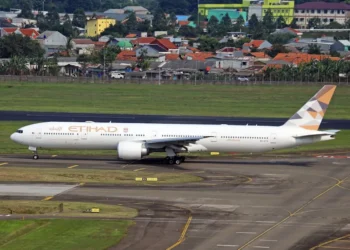Thailand’s Tourism Resilience Amid Global Airspace Uncertainty
While rising tensions in the Middle East have disrupted global air travel routes, Thailand’s tourism sector continues to demonstrate remarkable resilience. European travelers, in particular, are showing unwavering confidence in the Southeast Asian hotspot, with inbound bookings remaining strong and outbound plans staying stable.
Why Thailand Remains a Top Choice for European Tourists
Despite short-term concerns about airspace disruptions, several factors contribute to Thailand’s enduring appeal:
- Diverse flight routes: Multiple alternative pathways minimize reliance on Middle Eastern airspace
- Value for money: Competitive pricing maintains Thailand’s advantage over European destinations
- Seasonal timing: Europe’s summer travelers seek Thailand’s tropical monsoon alternatives
- Established infrastructure: Decades of tourism development ensure reliable hospitality services
Airline Adaptations Keep Thailand Accessible
Major carriers serving the Thailand-Europe corridor have implemented strategic adjustments:
- Rerouted flights avoiding conflict zones while maintaining schedule integrity
- Added capacity on Southeast Asian routes to accommodate shifting demand
- Enhanced travel insurance options addressing geopolitical concerns
Looking Ahead: Sustainable Growth in Challenging Times
Tourism analysts highlight Thailand’s unique position to benefit from current global circumstances. The country’s:
- Political stability contrasts with regional uncertainties
- Diverse offerings (beaches, culture, cuisine) appeal to varied traveler segments
- Improved visa policies facilitate easier access for European visitors
While the travel industry globally faces turbulence, Thailand’s tourism sector appears well-positioned to weather the storm and continue its post-pandemic recovery trajectory. Industry experts recommend travelers stay informed about route changes but remain confident in Thailand’s ability to deliver exceptional experiences regardless of broader geopolitical challenges.







